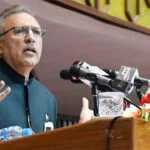The government is considering imposing a sales tax on luxury fuel in addition to raising the amount of the petroleum levy and enacting a 17% general sales tax (GST) in an effort to raise some Rs9 billion in taxes yearly. This is in accordance with the International Monetary Fund’s agreed-upon emergency measures to maintain income collection on schedule (IMF).
The proposal to impose a 17% GST on fuel was rejected by the Economic Coordination Committee (ECC), who instead agreed to boost the petrol tax on the High Octane Blending Component (HOBC) to Rs 20 per liter.
In order to earn Rs 160 million in income on HOBC each month, the government increased the petroleum duty to Rs 50 per litre. This is true even though there was a suggestion to charge HOBC GST.
However, because the money raised would go into the federal coffers, the economic decision-making committee supported boosting the charge on HOBC. However, as the provinces must receive a portion of the GST receipts, the federal government chose to increase the HOBC tax in order to increase its revenue.
According to information provided to the ECC, the government will get Rs6 billion in income from the implementation of 17% GST during the final eight months of the current fiscal year.
A total of 9,000 metric tonnes are consumed by HOBC users per month, or around 300 metric tonnes per day.
After debating whether to impose a GST on luxury fuel, the ECC decided that the petroleum charge on petroleum products should be increased to Rs50 per litre beginning on November 16, 2022. It further stated that the issue of raising the sales tax should be addressed later.
In accordance with clause (b) of sub-section (2) of Section 3 of the Sales Tax Act of 1990, the Federal Board of Revenue (FBR) notified the ECC that the prices of sales tax on petroleum products had been lowered to zero % with the implication from February 15, 2022, via confirmation SRO 321(1)/2022, dated March 1, 2022. The act also gives the federal government the authority to announce sales taxes that are lower or higher than the typical rate of 17%.
One of the main producers of the nation’s tax revenue is the petroleum industry, and the FBR’s efforts to meet its revenue goals have been under great strain as a result of the distortion in that industry’s tariff structure.
In the 7th and 8th Reviews, it was agreed with the IMF that the government would implement emergency measures to maintain tax collection goals. As a result, one such backup plan involved raising the GST rate on petrol before it reached the usual amount of 17%.
The Petroleum Division suggested that the sales tax rate may be increased from 0% to 17% on HOBC and RON 97 exclusively, as both are regarded as luxury commodities purchased by wealthy consumers for their vehicles, in order to protect the general population from the inflationary impact of an increase in GST on all petroleum products. In contrast to super gasoline, which is now being sold at Rs225 per litre, it is now being offered at a premium price of Rs256 per litre (HOBC).
For the remaining eight months of the current fiscal year, this proposal will likely result in an increase in income of approximately Rs6 billion.
The proposed and current rates of sales tax on fuel products were therefore highlighted. The FBR subsequently asked the EC to approve its proposal titled “Increase in rate of Sales Tax on HOBC” and made the decision to raise the charge from Rs30 to Rs50 per litre on RON 95 and above, effective November 16, 2022.












